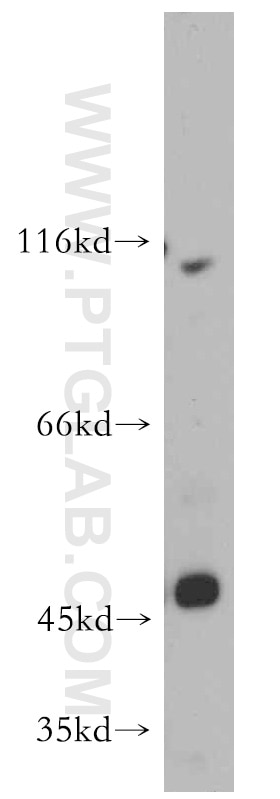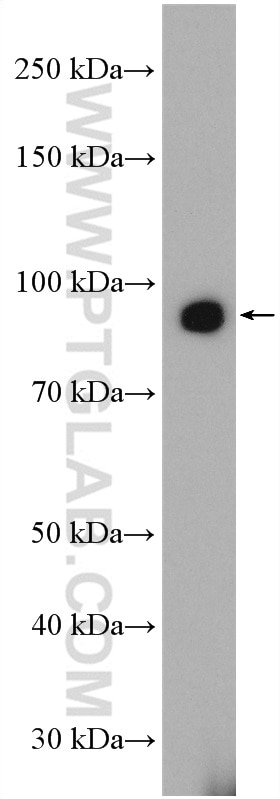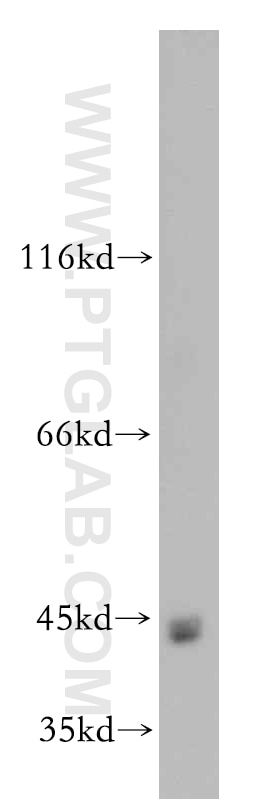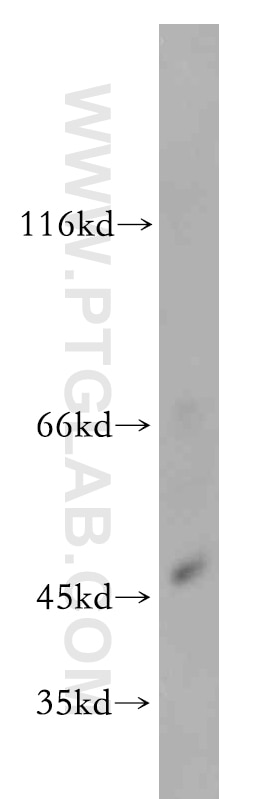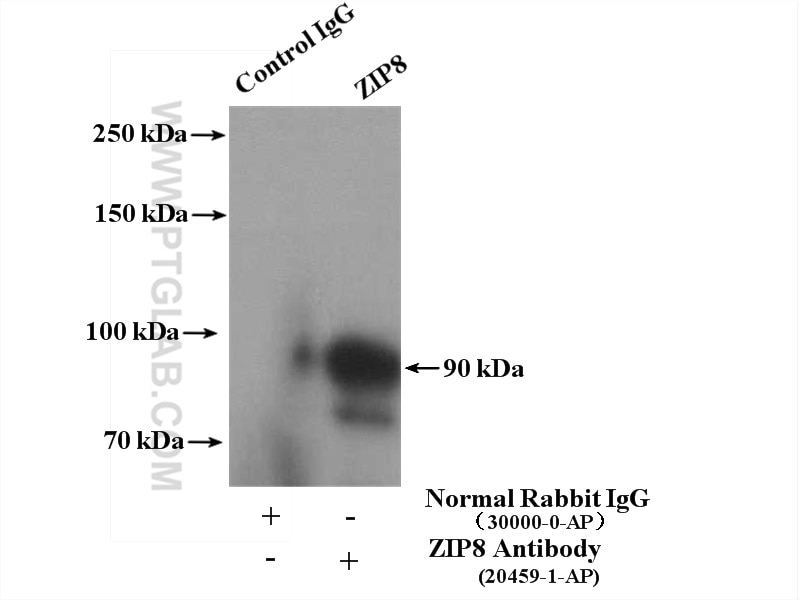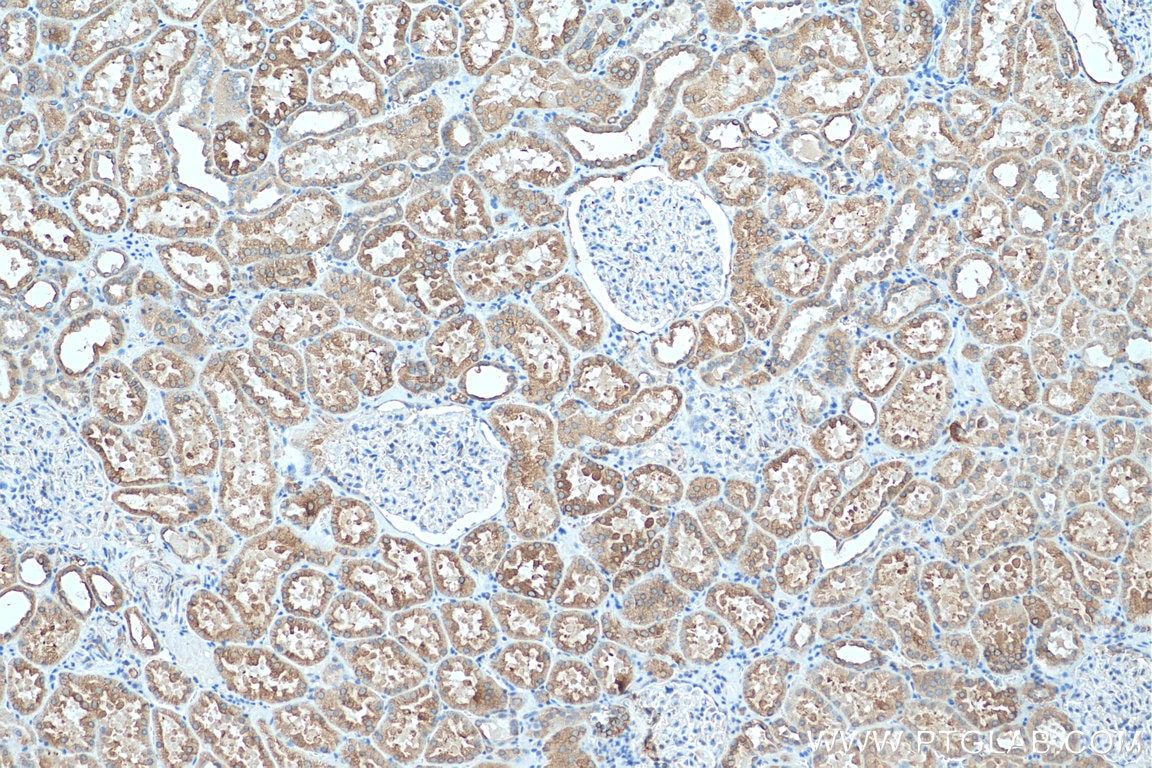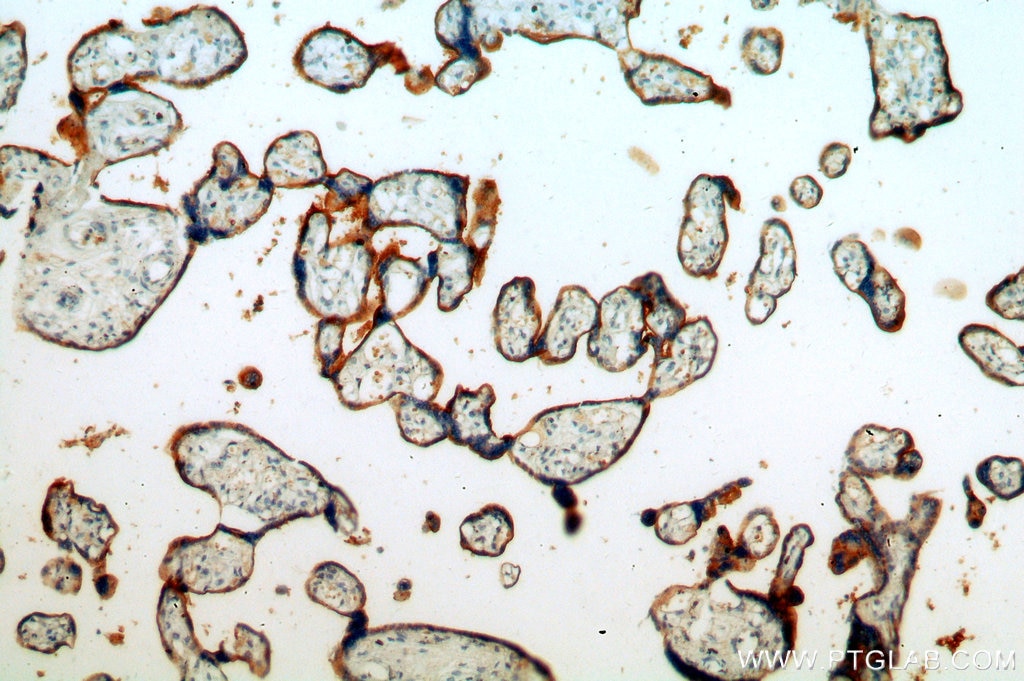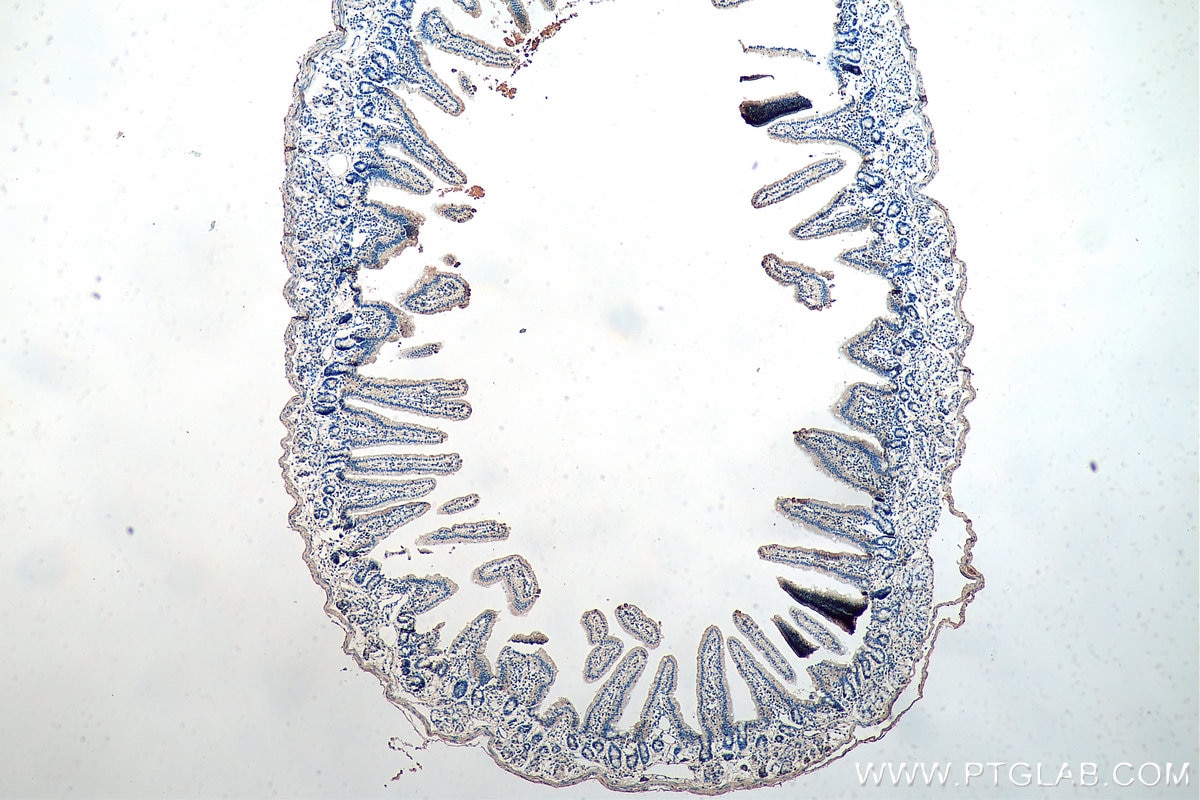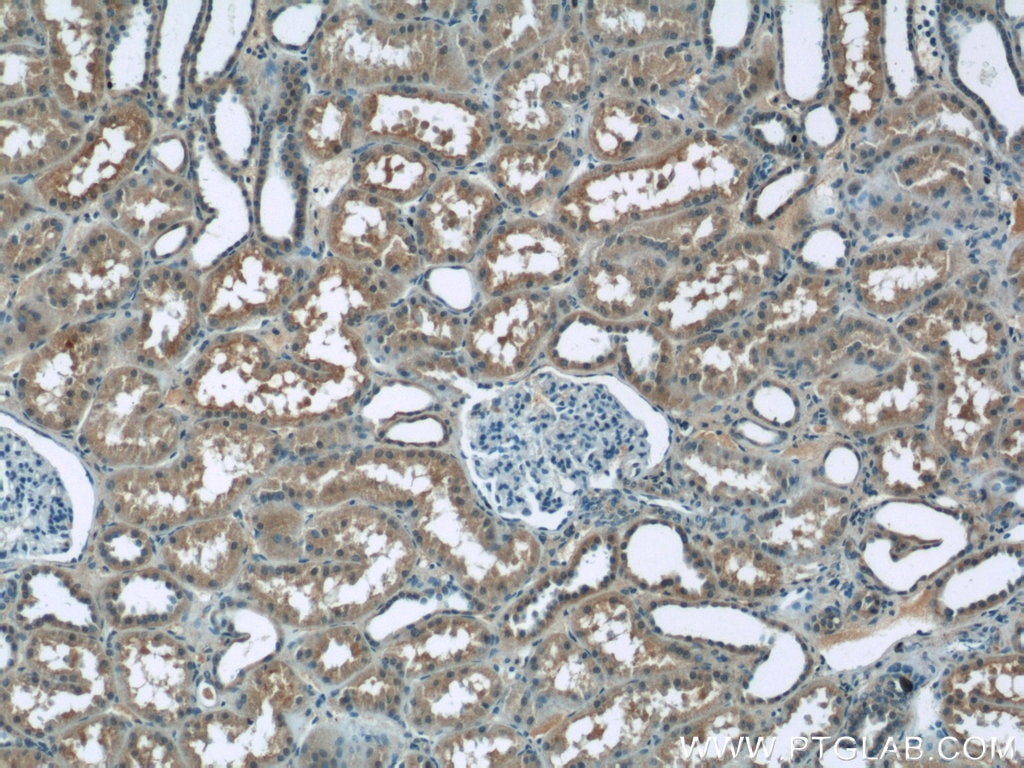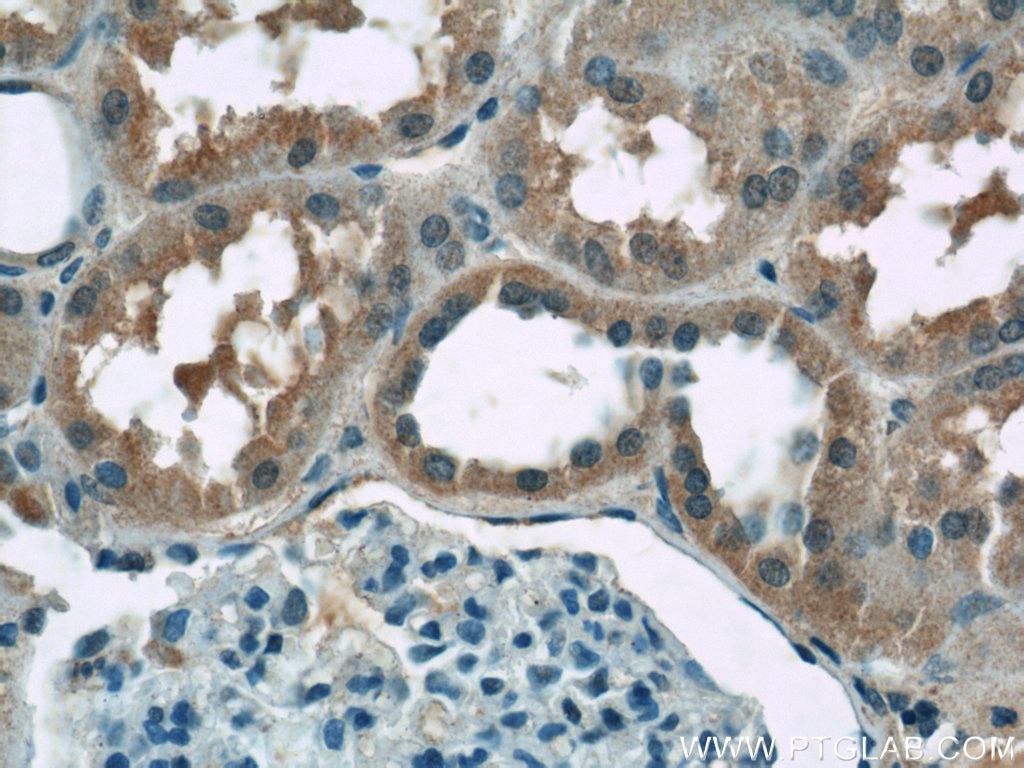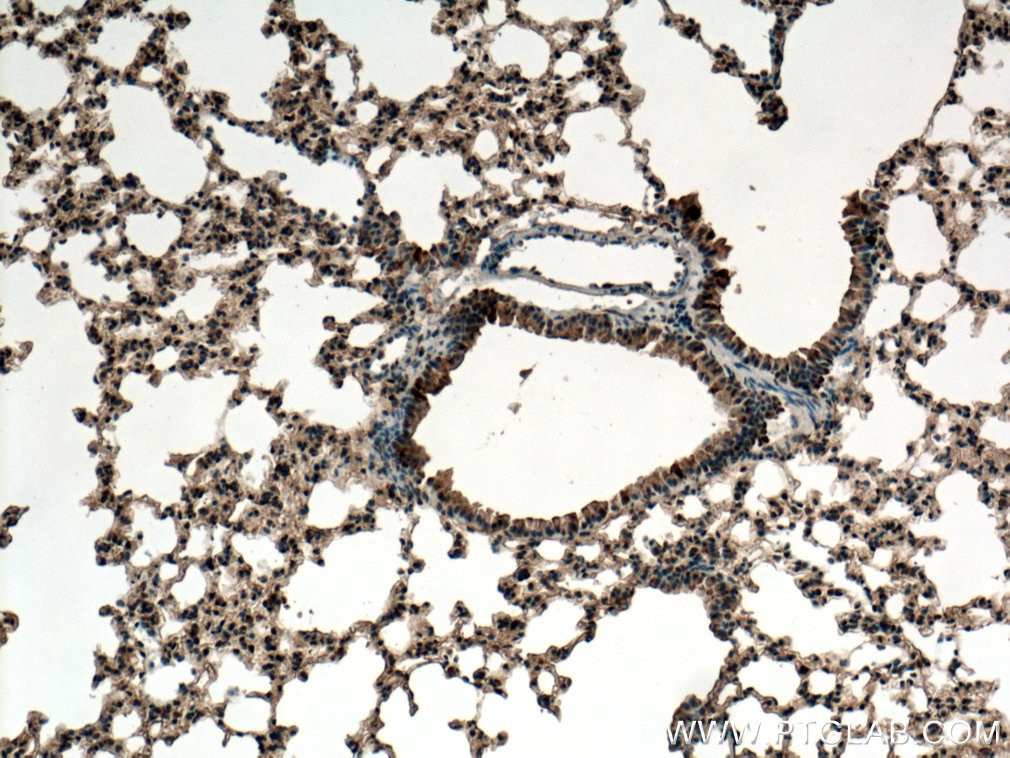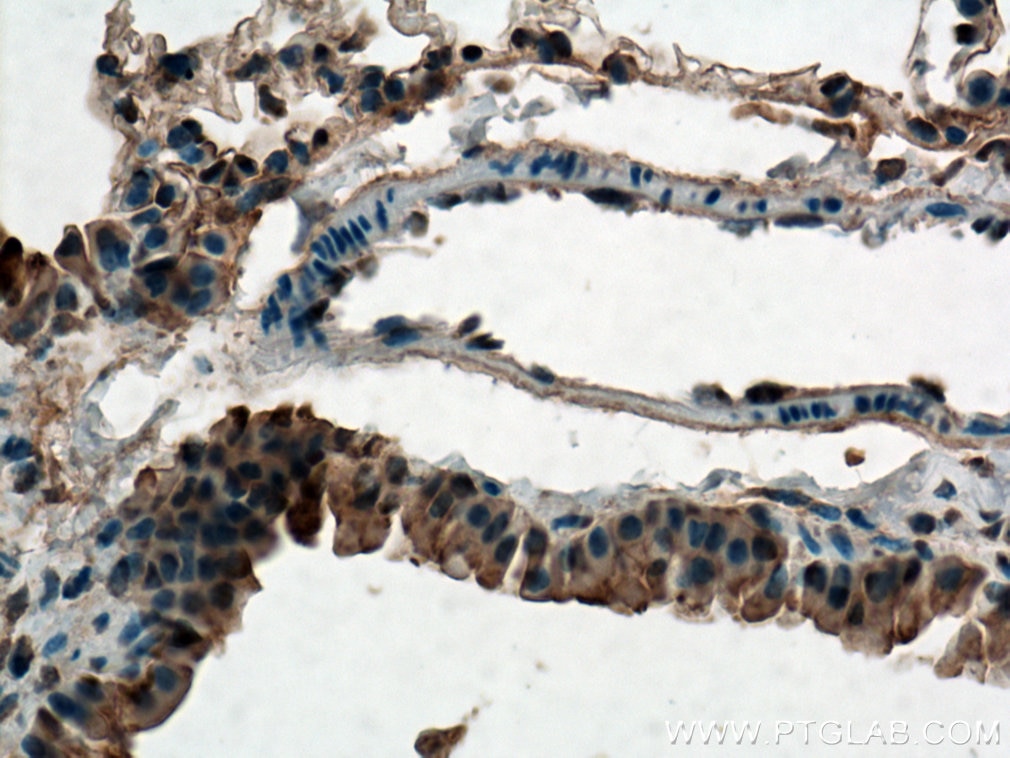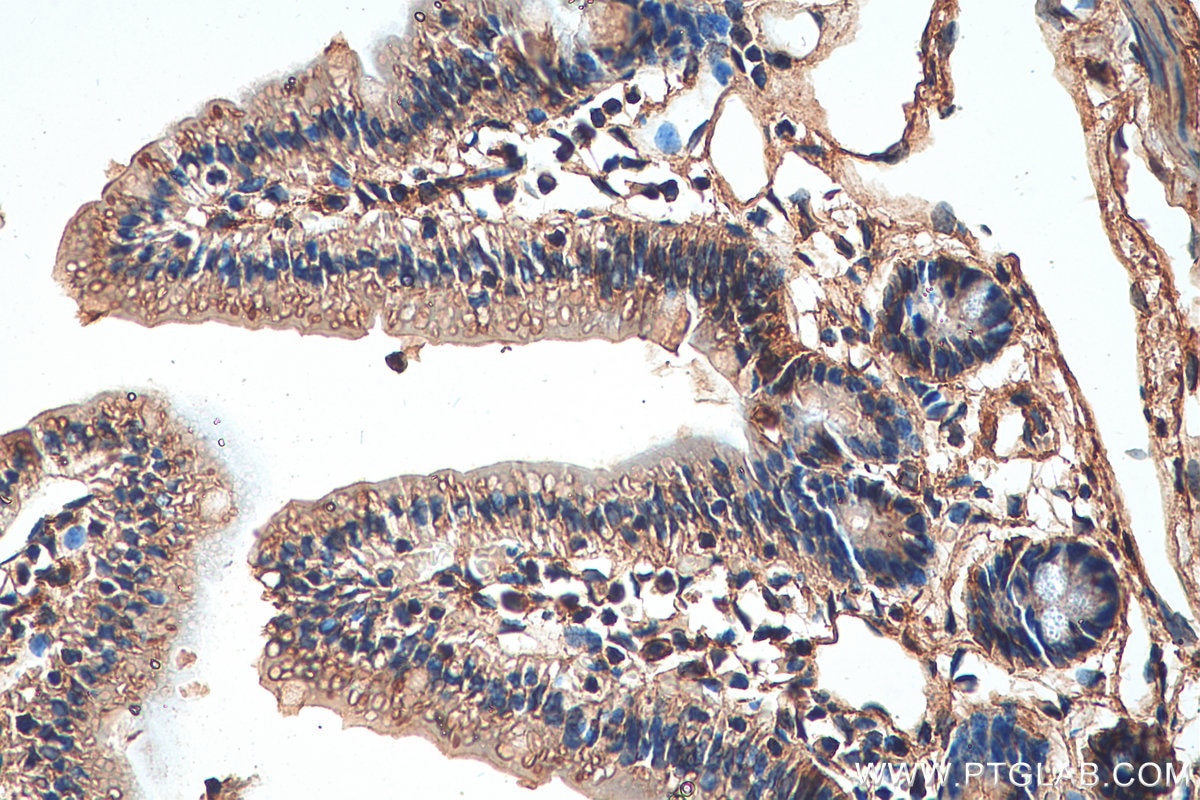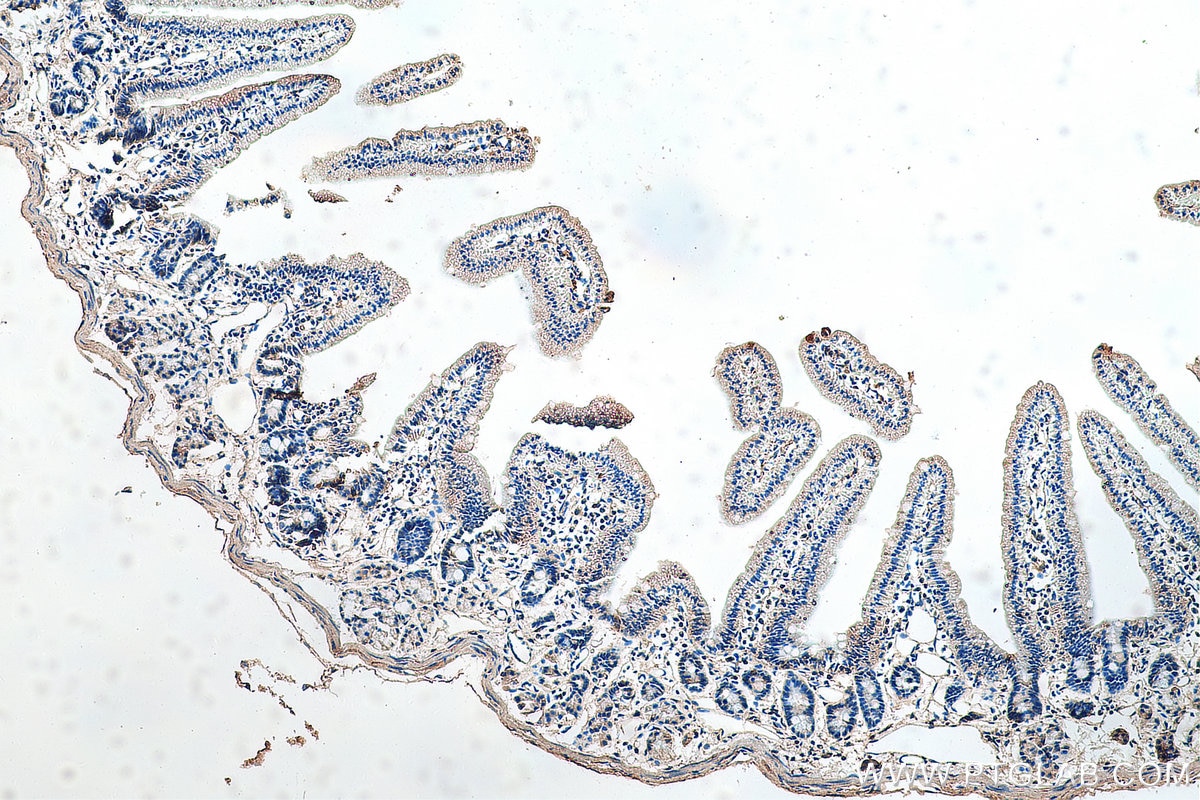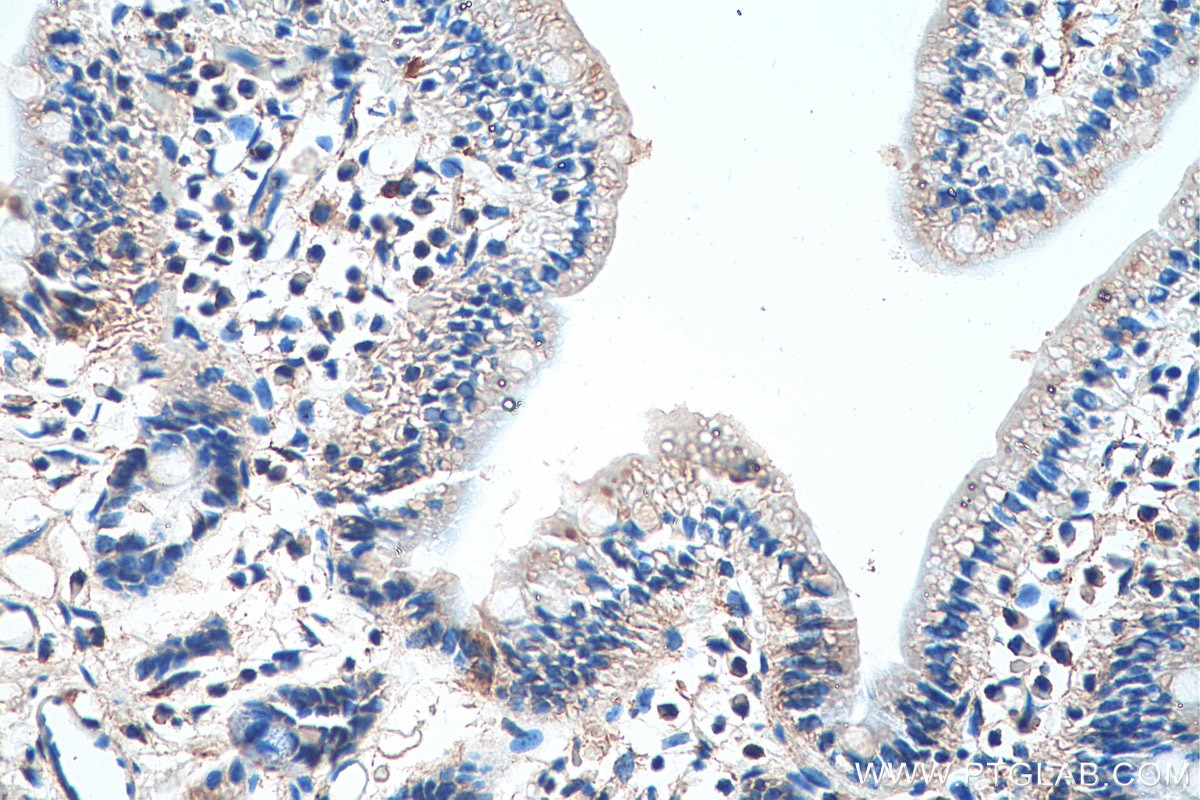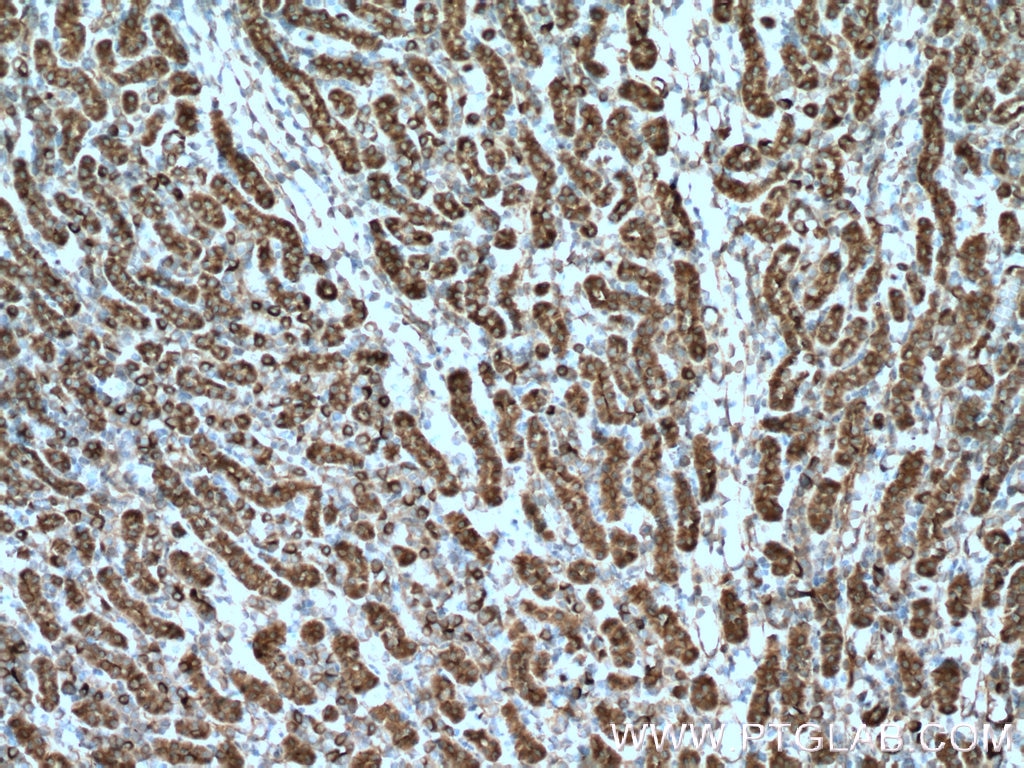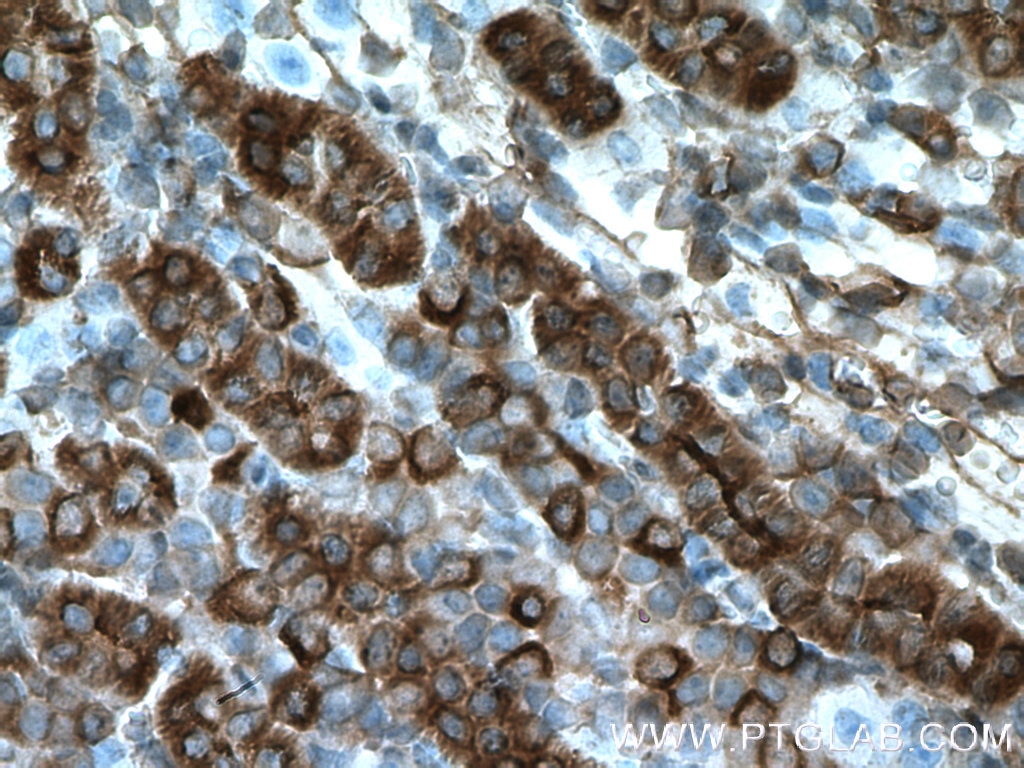- Phare
- Validé par KD/KO
Anticorps Polyclonal de lapin anti-ZIP8
ZIP8 Polyclonal Antibody for WB, IP, IHC, ELISA
Hôte / Isotype
Lapin / IgG
Réactivité testée
Humain, souris et plus (3)
Applications
WB, IP, IF, IHC, ELISA
Conjugaison
Non conjugué
N° de cat : 20459-1-AP
Synonymes
Galerie de données de validation
Applications testées
| Résultats positifs en WB | tissu pulmonaire de souris, cellules U-937, tissu cardiaque de souris, tissu hépatique de souris |
| Résultats positifs en IP | tissu hépatique de souris |
| Résultats positifs en IHC | tissu rénal humain, tissu d'intestin grêle de souris, tissu placentaire humain, tissu pulmonaire de souris, tissu rénal de souris il est suggéré de démasquer l'antigène avec un tampon de TE buffer pH 9.0; (*) À défaut, 'le démasquage de l'antigène peut être 'effectué avec un tampon citrate pH 6,0. |
Dilution recommandée
| Application | Dilution |
|---|---|
| Western Blot (WB) | WB : 1:500-1:2400 |
| Immunoprécipitation (IP) | IP : 0.5-4.0 ug for 1.0-3.0 mg of total protein lysate |
| Immunohistochimie (IHC) | IHC : 1:50-1:500 |
| It is recommended that this reagent should be titrated in each testing system to obtain optimal results. | |
| Sample-dependent, check data in validation data gallery | |
Applications publiées
| KD/KO | See 7 publications below |
| WB | See 27 publications below |
| IHC | See 8 publications below |
| IF | See 8 publications below |
| FC | See 2 publications below |
Informations sur le produit
20459-1-AP cible ZIP8 dans les applications de WB, IP, IF, IHC, ELISA et montre une réactivité avec des échantillons Humain, souris
| Réactivité | Humain, souris |
| Réactivité citée | rat, bovin, Humain, porc, souris |
| Hôte / Isotype | Lapin / IgG |
| Clonalité | Polyclonal |
| Type | Anticorps |
| Immunogène | ZIP8 Protéine recombinante Ag14292 |
| Nom complet | solute carrier family 39 (zinc transporter), member 8 |
| Masse moléculaire calculée | 460 aa, 50 kDa |
| Poids moléculaire observé | 42-46 kDa, 75-90 kDa |
| Numéro d’acquisition GenBank | BC012125 |
| Symbole du gène | ZIP8 |
| Identification du gène (NCBI) | 64116 |
| Conjugaison | Non conjugué |
| Forme | Liquide |
| Méthode de purification | Purification par affinité contre l'antigène |
| Tampon de stockage | PBS avec azoture de sodium à 0,02 % et glycérol à 50 % pH 7,3 |
| Conditions de stockage | Stocker à -20°C. Stable pendant un an après l'expédition. L'aliquotage n'est pas nécessaire pour le stockage à -20oC Les 20ul contiennent 0,1% de BSA. |
Informations générales
SLC39A8, also known as ZIP8, belongs to the ZIP family of metal ion transporters which function to transport zinc and/or other metal ion substrates from the extracellular space or organellar lumen into the cytoplasm. Recently it was found that ZIP8 expression is upregulated in human monocytes in response to LPS, TNF-α, and live bacteria, facilitating cytoprotection during the early inflammation. Besides zinc ZIP8 can also transport cadmium and manganese efficiently. It is predicted that ZIP8 contains 3 potential N-linked glycosylation sites and is subject to glycosylation, which may account for the presences of multiple molecular weights, such as 43 kDa, 49 kDa, 60 kDa, 75-90 kDa, 150 kDa, and 200 kDa.
Protocole
| Product Specific Protocols | |
|---|---|
| WB protocol for ZIP8 antibody 20459-1-AP | Download protocol |
| IHC protocol for ZIP8 antibody 20459-1-AP | Download protocol |
| IP protocol for ZIP8 antibody 20459-1-AP | Download protocol |
| Standard Protocols | |
|---|---|
| Click here to view our Standard Protocols |
Publications
| Species | Application | Title |
|---|---|---|
J Clin Invest Hepatic metal ion transporter ZIP8 regulates manganese homeostasis and manganese-dependent enzyme activity.
| ||
Acta Neuropathol Commun Deregulation of subcellular biometal homeostasis through loss of the metal transporter, Zip7, in a childhood neurodegenerative disorder. | ||
Int J Mol Sci Mitochondria-Targeting Antioxidant Provides Cardioprotection through Regulation of Cytosolic and Mitochondrial Zn2+ Levels with Re-Distribution of Zn2+-Transporters in Aged Rat Cardiomyocytes. | ||
Int Immunopharmacol ZIP8 induces monocyte adhesion to the aortas ex-vivo by regulating zinc influx.
| ||
Front Cell Dev Biol An Iron Metabolism-Related Gene Signature for the Prognosis of Colon Cancer.
|
